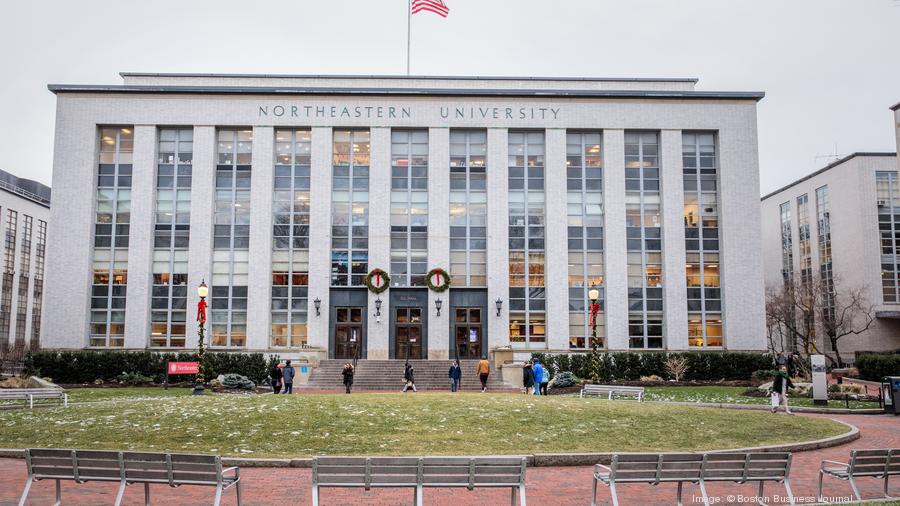See Correction/Clarification at the end of this article.
Massachusetts is among the most progressive states politically, but that doesn't translate to diverse leadership on the campuses themselves, according to a report released Thursday by the Cape Cod-based Eos Foundation.
The women’s business advocacy group portrayed a stark juxtaposition on campuses. Female students have outnumbered men since the 1970s, it said, but women still hold few college leadership positions, particularly among prestigious institutions.
In Massachusetts, none of the eight so-called R1 institutions, those with the biggest research operations, have a female president: Brandeis University, Boston College, Boston University, Harvard, Massachusetts Institute of Technology, Northeastern University, Tufts University and UMass Amherst.
Five of those eight — BC, BU, Northeastern, Tufts and UMass Amherst — have never had a female president in their history, the Eos Foundation said.
“They’re not leading on this issue,” Andrea Silbert, the president of the foundation, said in an interview Thursday about elite research institutions.
That’s particularly disappointing, she said, because colleges have an outsized role in producing new members of the workforce, as well as for their research and their role in society. Most schools’ leaders believe in diversity and think they’re doing all they can to promote it, she said. But they often aren’t, as can be seen in how some are doing better in diversity than others.
"This shows that you're not doing everything you can,” Silbert said, “because someone is doing more."
Some other Massachusetts colleges are notable for their female presidents even if they don’t rank among the R1 institutions, including Wellesley University, Amherst College and Worcester Polytechnic Institute. Smith College, Williams College, Wheaton College, Olin College of Engineering and UMass Lowell also have female presidents.
Many two-year colleges also do particularly well, Silbert said, including Benjamin Franklin Institute of Technology and Roxbury Community College, both of which have Black women as presidents. Bunker Hill Community College and Bristol Community College in Fall River have female presidents, too.
The Eos Foundation compared Massachusetts unfavorably with another liberal state known for its great colleges, California. In California, eight of 11 R1 schools have had a female president.
More broadly, R1 schools don’t fare well, the report said. Of the 130 schools in that category, just 22% have a female president, and only 5% have a woman of color as president. Almost half have never had a female president, and 62% declined to specify the diversity of its board of trustees.
"It all starts there, because the board hires the president and the board sets the tone,” Silbert said.
That last element, Silbert said, shows a lack of transparency out of step with corporate America, whose largest companies are typically making greater strides both in having diversity among executive and board positions and being more transparent about the backgrounds of such leaders.
To some degree, public companies face pressure to make such moves because of either outspoken shareholders or new policies such as Nasdaq’s new rules effective this year. Companies listed on the exchange annually disclose statistical information about the board’s voluntary self-identified gender, racial characteristics and LGBTQ+ status, and must have at least two self-identified diverse board members, or explain why it can’t meet that threshold.
Colleges could be given similar pressure, Silbert said, either through accreditation bodies or higher education departments.
A separate report published last fall by the Association of Governing Boards of Universities and Colleges found that women accounted for 37% of public university board seats in 2020 and 36% of private college board seats, up from 12% in 1969 when AGB started tracking such metrics. Despite some gains in the past five years, the percentages of female board members still do not reflect the 59.5% of college students in the U.S. who identified as women in 2021.
Higher-ed experts have called diversity an important factor in most presidential searches today.
“Diversity is an important, explicit value in presidential searches,” said Larry Ladd, senior consultant with the Association of Governing Boards Universities & Colleges. “To be successful a search must aggressively seek out the many women and people of color who are ready to lead and to give them that opportunity. It's also important to be aware of the unconscious bias that can sometimes be an obstacle.”
Hilary Burns, Editor of The National Observer: Higher Education, contributed to this report.
Total FTE student enrollment for Fall 2020
| Rank | Prior Rank | School/Prior rank (*unranked in 2020)/ |
|---|---|---|
1 | 1 | University of Massachusetts Amherst |
2 | 2 | Boston University |
3 | 3 | Northeastern University |
Correction/Clarification
A previous version of this story incorrectly listed Babson College among the college with a female president, and omitted both Tufts University and UMass Amherst as among those which have never had a female president.





